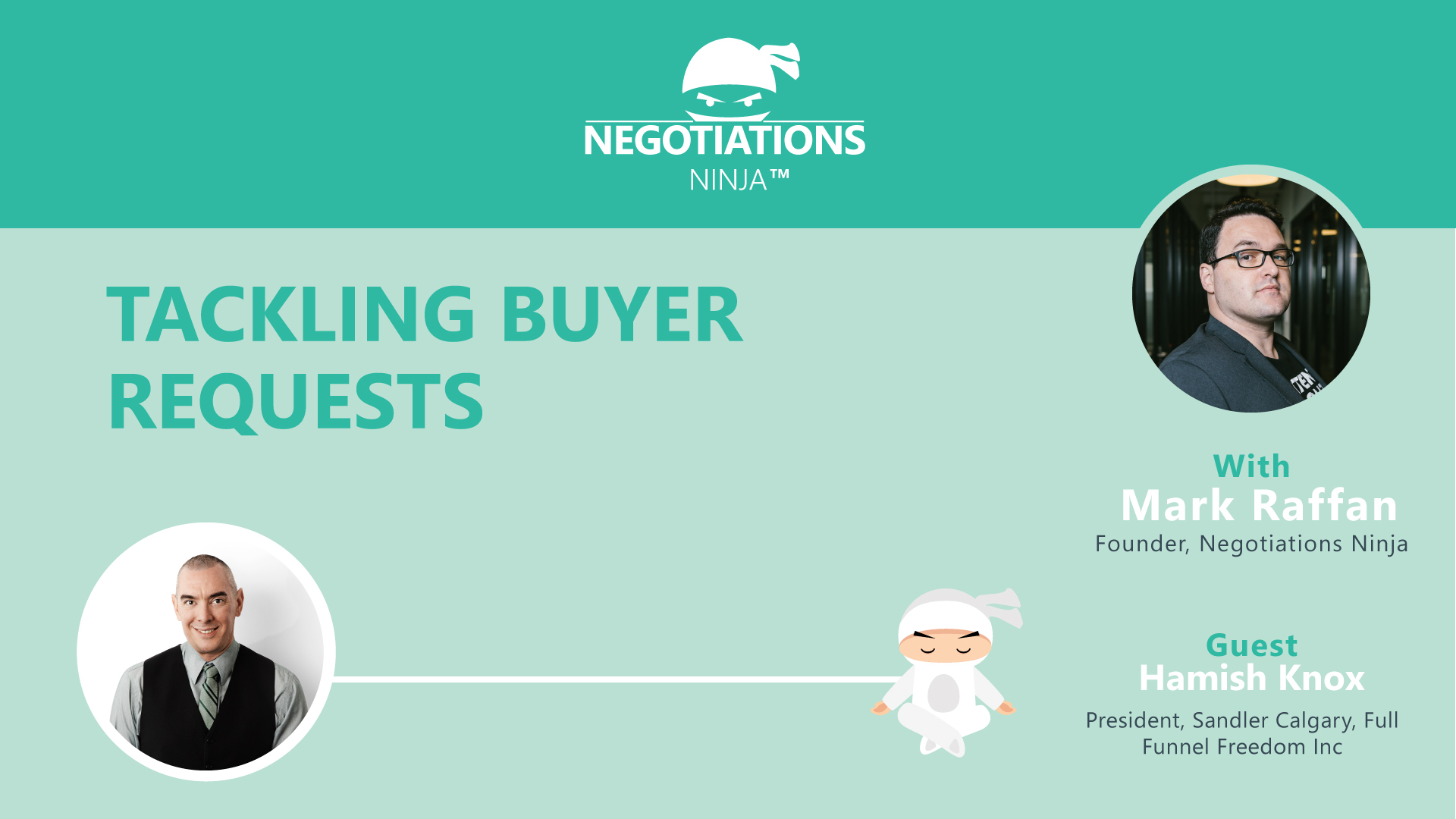What do you do when a buyer makes a request? It can be easy to quickly say, “Sure, I’ll do that,” and give them whatever they want. However, Hamish Knox has a far better strategy that will get everyone to what they want faster. In this episode of Negotiations Ninja, Hamish tackles all things buyer requests, including understanding why they’re making a request and how to hold them accountable.
Outline of This Episode
- [1:39] Learn more about Hamish Knox
- [2:20] What to do when a buyer makes a request
- [7:47] Understanding why a buyer makes a request
- [12:14] How to hold buyers accountable
- [17:13] Does the “relationship” only exist in your head?
- [19:14] A good relationship is a profitable relationship
- [20:45] Handling culture shifts when people retire
- [22:58] How to approach virtual discussions
What to do when a buyer makes a request
When a buyer makes a request, bring the future to the present. So if your buyer says, “I just need this from you…” you say, “I’m happy to do that. But let’s say I come back with a proposal, and you love it. What would happen next from your perspective?” Whatever comes out of their mouth next is the truth.
If they ask for a proposal, you can point out that people usually have questions after a proposal. Ask them what their schedule looks like and get a date on the calendar for you to make the proposal and answer their questions. Ensure anyone else who needs to be part of the conversation is also available.
You can put something together and then share it in person, making it clear that it’s in draft form. If you don’t hit the mark, you deal with it in real-time and make edits (as opposed to sending numerous emails back and forth).
Procurement and sales are working toward the same outcome: Supporting the end user. Procurement is busy. They don’t want to go back and forth via email. Getting things done immediately in person will resonate with them.
Understanding why a buyer makes a request
Buyers are programmed to treat sellers the same way. They ask the same questions no matter what you’re selling. You need to understand the root reasons behind their questions.
If they say, “What’s your service response time?”—talking about repairs in the field—you could say, “It’s within three business days.” But maybe they’re hoping the answer would be two business days, and you’ve backed yourself into a corner. You might have to offer a discount to get their business.
Or, you could say, “Usually, people ask about response time because they’ve had an experience in the past that wasn’t positive. Do you mind sharing what your experience is with your current supplier?” Another option is, “Well, a lot of people are hoping for something that’s less than two business days, or they’re comfortable with it being within the same week. Where do you fall?”
Asking questions like this forces you to slow the conversation down and learn more about their needs in the process.
What to do if you make a mistake
If you mess up and give a canned “three business day” response, you can always catch yourself and say,”That’s our normal response time, but it sounds like this is really important to you. Help me understand why response time is so important to you.” They may have been burned in the past.
You can make an agreement based on what’s beneficial to them. If it’s less than three business days, you could let them know that additional fees would apply, but you can’t make a faster response time happen.
But there’s a caveat. Hamish points out that sales is a conversation. If the buyer can find the information using a search engine, answer and then ask a question back. The goal is a conversation, not an interrogation.
Resources & People Mentioned
Connect with Hamish Knox
- Sandler Training
- Connect on LinkedIn
Connect With Mark
- Follow Negotiations Ninja on Twitter: @NegotiationPod
- Connect with Mark on LinkedIn
- Follow Negotiations Ninja on LinkedIn
- Connect on Instagram: @NegotiationPod




